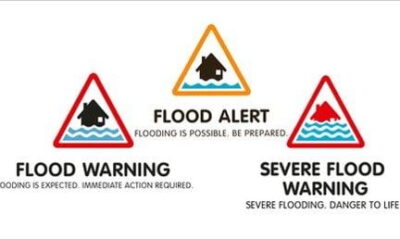

Environment
Environmental Issues And Your Health: Why Where You Live Matters
In the event of major environmental disasters like the Deep Water Horizon oil spill or the similar BP Great Australian Bight spill, we hear a lot about the impact of such pollutants on the ecosystem. This is important information, demonstrating how man made disasters can devastate entire economies – consider the state of fishing in the US Gulf after Deep Water Horizon. But what we don’t always hear about are the effects of such disasters on human health and wellbeing.
In fact, it’s not just major environmental disasters that can cause ill health, but also pervasive pollutants such as car exhaust or factory byproducts that can impact your health and risks of future disease. This is why asking about your home and work environments should always be a part of your medical history. Doctors can more accurately predict health outcomes when they know what your daily life is like.
The Long Term Health Impacts Of Oil Spills
It’s now been over five years since the Deep Water Horizon spill and doctors are only just beginning to recognize some of the health-damaging outcomes associated with this event. One unexpected problem stems from the use of an oil dispersant called Corexit used to clean up the spill.
Follow-up on communities touched by the oil spill has revealed that although Corexit was used to reduce the likelihood of oil related health problems, the treatment also proved toxic. The impact on human health is so severe that it has even been dubbed BP Syndrome.
Those affected by this syndrome – including fishermen, their children, and even grandchildren – have symptoms including neurological problems, weight loss, severe allergies, heart, kidney, and liver problems, and even seizures and paralysis. Where these people live and where they work is integral to understanding their health risks.
Everyday Environmental Hazards
Of course, most of us don’t live and work in the midst of post-oil spill conditions, but that doesn’t mean our daily lives are risk free. Rather, most of us spend time in at least mildly toxic environments. Consider your local air and water quality, for example. Everything from lead in the water to dust and mold can cause health problems.
Young children are especially vulnerable to lead, which can cause reduced IQ and other neurological and behavioral issues. The recent contaminated water crisis in Flint, Michigan is another example of how especially marginalized populations are most likely to be exposed to environmental toxins.
Preventing Environmental Illness
What can we do to prevent worsening of these types of health problems? Typically known as environmental illnesses, such conditions can be reduced by increasing our commitment to reduced vehicle and factory emissions. It’s also important that all homes be inspected for lead paint, as children may accidentally ingest it and develop lead poisoning.
It’s also important that we continue to push for alternative energy sources, especially in light of all the oil spills experienced in the last few years. Clean energy sources like wind turbines and solar power are far preferable as they pose no environmental risk, yet most countries are still hesitant to embrace these energy sources fully.
Proper air filtration and appliance upkeep can also help to reduce the likelihood of environmental illness on an individual level. Always make sure wood burning stoves are properly ventilated and that older buildings have been renovated to remove any traces of asbestos. While both of these issues may seem largely invisible, they can cause difficulty breathing and even lung cancer. Asbestos in particular can cause a subtype of cancer known as mesothelioma.
So many of the substances we encounter and rely on each day contain carcinogenic substances and yet the government continues to license and rely on these products. Some of these products are unavoidable, but with increased awareness you can opt out of using luxury items that might pose a risk to your health. Even small steps can help reduce your risk of health problems down the line.


 Features11 months ago
Features11 months agoEco-Friendly Cryptocurrencies: Sustainable Investment Choices

 Energy11 months ago
Energy11 months agoThe Growing Role of Solar Panels in Ireland’s Energy Future

 Energy10 months ago
Energy10 months agoGrowth of Solar Power in Dublin: A Sustainable Revolution

 Energy10 months ago
Energy10 months agoRenewable Energy Adoption Can Combat Climate Change




























